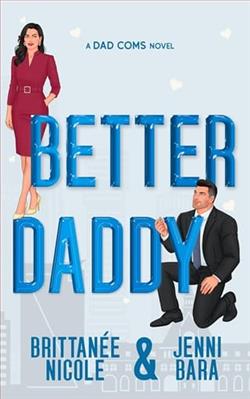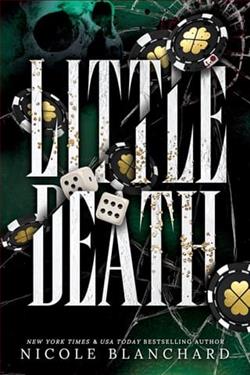Page 36 of A Week Away
She reached into the hip pocket of her uniform and pulled out a change purse. She picked out a quarter and put in on the table in front of me. Then she snatched up the plates, saying, “I’ll bring your check.”
I slid the quarter over to Cass. “Call your Aunt Suzie. Ask her if your father ever held any offices in the union.”
“Why don’t you do it?”
“For one thing, I don’t think she trusts me. And for another you need to hear this yourself.”
Cass got out of the booth and slunk back to the pay phone. I sat there wishing for a refill on my coffee. The waitress brought the check, I asked for a refill on the coffee, then took my credit card out to pay the bill.
I was about half way through my refilled cup of coffee when Cass came back to the booth.
“How’d it go?”
“She asked a lot of questions about you. She called Big Brothers and found out they don’t help kids find their parents.”
“Yeah. I didn’t think she bought it. What did you tell her?”
“I said I was using the money I made on weekends to pay you.”
“Did she buy that?”
“No. I had to tell her I borrowed some money from my mom’s gambling stash.”
I didn’t have to ask if she bought that. I was sure she would. I wondered how many people knew about the money Joanne kept in her closet. I also wondered if that really was a gambling stash. Was she that good at it? Of course, if she was pretty enough and clever enough she might not ever have to stake herself in a casino, which would make walking out with cash a lot more likely.
And then I realized there were no photos in their house. None of Cass and none of Joanne. The only thing on their walls were a couple of paintings. The kind you bought in a furniture store when you picked out your sofa.
“What did she say about the union?” I asked.
“She said my dad paid his dues. And that was it.”
The waitress came back with my credit card and the slip to sign. I made good on my promise to tip her extra for the quarter. She looked like she might smile but then seemed to decide it was too much effort.
I looked at Cass and said, “Shall we?”
In the car it seemed like he might resist going to Top Dawg, but he gave up before he started and we silently drove there. It was located in what was probably called an office park. A wide, two-story brick building with mirrored windows that reflected the large parking lot. There were several like that, all in a row.
Before we got out of the car, Cass put the anti-theft bar onto his steering wheel. Something that seemed pointless since there were only a few other cars in the lot. We walked over to the glass and steel entrance. The doors were open and we walked past a security desk. There was a clipboard sitting on the counter where we were probably supposed to sign in, but there was no security guard at that moment so we didn’t bother.
We took the elevator to the second floor, where we walked down a winding hallway until we got to office number 225. There was a plaque next to the door that said: TOP DOG COLLECTIONS.
Right away that was a problem. The stationery Joanne used at home said Top Dawg. D-A-W-G. What was going on? Was she syphoning off accounts to her similar sounding company? Top Dog would buy the debt and then Top Dawg would collect it? Is that how it worked? Did she mark them down as uncollectible and then bring them home? She had to have a way to get them off the Top Dog books…
Cass got out his keys and opened the door. Immediately, we were in a small outer office with a desk and a row of filing cabinets. Behind that were two doors to separate offices: One said ANTON CRAY, ESQ, the other JOANNE DI STEFANO, CP.
At the desk sat a young Black woman with carefully braided hair, a significant amount of colorful jewelry and expertly manicured nails. She was on the phone with a stack of files spread out in front of her.
“I’m gonna have to call you back. No, I will call you back. Yes, I will. Yes—” Apparently, she was hung up on. With a frown she set down the phone. “Well, hello Mr. Cass. What are you doing here on a Sunday?”
The boy was obviously tongue-tied, so I said, “His mother forgot something in her desk.”
“Did she now. And you are?”
“A friend of the family,” I said, hoping she didn’t know the family too well.
She didn’t pursue that but instead said, “Sometimes I come in on Sundays and do calls. Deadbeats think we take weekends off so they answer their phones.”
I had the feeling there was more to it than that. Probably something dodgy. Probably not as dodgy as what Joanne had going, but who knew. I was getting the impression that squeezing pennies out of broke people was so profitable that Anton Cray didn’t have to worry much about his employees opening their own revenue streams.















